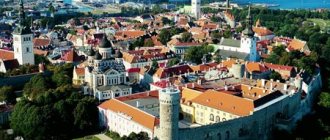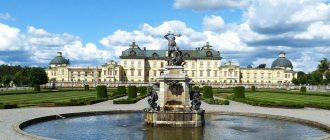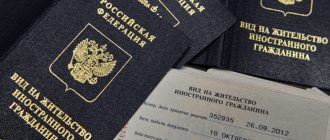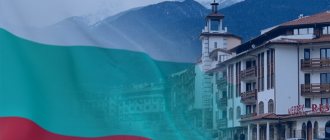What privileges does a residence permit in Estonia provide?
Many potential immigrants are interested in what prospects will open up for them if they move to the Republic of Estonia. First of all, we are talking about:
- the possibility of visa-free entry into the territory of the European Union countries;
- possession of a European ID card, which can be used as identification throughout the European Union;
- the prospect of obtaining citizenship of the Republic of Estonia;
- the right to receive higher education at the European level;
- official employment with a decent salary level;
- business opportunities in favorable tax conditions;
- social safety and security.
This is what an Estonian residence permit gives to its owner.
On what grounds can one obtain an Estonian residence permit?
According to the provisions of Estonian legislation, foreign citizens planning to stay on the territory of the state for more than three months must obtain a residence permit - official permission for long-term residence.
The applicant must be:
- a law-abiding citizen;
- loyal to the sovereignty of the Republic of Estonia;
- adults (persons under 18 years of age require notarized parental permission to emigrate).
In addition, it should be remembered that an Estonian residence permit is provided for financially independent persons. This means that the applicant must have legal sources of stable income that will allow them to live abroad.
There are several options for obtaining a residence permit in Estonia.
One of the easiest ways to obtain a residence permit is to reunite with your family.
Anyone who has close relatives in the Republic can use it:
- spouse;
- parents;
- minor child;
- an adult child who requires care from a parent/guardian for health reasons;
- grandparents in need of care.
Among the common ways to obtain a residence permit in Estonia is official employment on its territory. This option is available to foreigners who have signed a contract with an employer for a period of at least 12 months or have received an official invitation to work. In this case, the monthly salary must be at least 1,321 euros.
The article “Main trends in modern labor migration” will help you understand the state of migration processes in the world as a whole.
You can also obtain a residence permit in Estonia when opening a company. An entrepreneur must invest in the Estonian economy from 16,000 euros in case of establishing his own business or from 65,000 euros when participating in a partnership. In addition, it must be proven that the invested financial resources were obtained legally. Foreign entrepreneurs opening their companies in Estonia enjoy tax benefits.
The tax system is described in detail in the article “Tax system in Estonia: simple and effective.”
In 2021, the Estonian government launched a program aimed at issuing startup visas to foreign citizens. To qualify for such a visa, you must have an income of 130 euros per month and develop a promising business project. A specially created startup committee evaluates the quality of projects.
The article “Business abroad: where and how best to open your own business” will tell you in detail about the possibilities of starting a business in developed countries, problems and ways to solve them.
After approval, the project must undergo verification (confirmation) by the Estonian Ministry of Economics. Applicants who are not residents of European Union countries can obtain a residence permit under a start-up program lasting from one year to five years.
Investment in real estate in Estonia is not a sufficient condition for obtaining a residence permit, unlike many other countries where you can apply for such status when purchasing real estate.
It is these countries that the article “How to obtain a residence permit when buying real estate in 2021” talks about.
The right to obtain a residence permit in Estonia is granted to students of local universities, participants in volunteer projects and internships in the country. Also, a sufficient condition for obtaining a residence permit is scientific activity in the Republic.
The level of education here is competitive, and tuition fees are quite liberal - from 1,500 euros per academic year. There are free higher education programs for talented students.
The Estonian authorities provide residence permits to refugees - foreigners for whom returning to their home country is associated with a real threat to their lives. We are talking about people who became victims of persecution for political, racial, religious reasons and were forced to urgently leave their homeland.
Estonian legislation also provides for so-called special cases of granting residence permits to foreigners. In particular, people who are valuable to the Republic can apply for this status: athletes, scientists, writers, actors.
Countries that provide residence permits easier than Estonia do are described in the article “Where to obtain a residence permit is the fastest and easiest way.”
Grounds for obtaining a residence permit
To acquire a residence permit in Estonia, the applicant must prove the existence of ties with this country. These connections are called the grounds for obtaining a long-term residence permit in Estonia. There are the following types of grounds:
Employment
The existence of this basis is confirmed by the employment contract concluded with the Estonian company. The contract must be valid for at least 12 months. The salary must be no lower than 1177 euros per month. The company must conduct real economic activity and have state registration in Estonia. According to the rules of the European Union, an employer must first offer a vacancy to local residents, then to citizens of other EU countries. Only if there are no applicants who meet the requirements can a foreigner be hired. Estonians themselves willingly go to work in Germany, France and other old EU countries. Residents of Eastern Europe also strive for the richest countries. It is possible to find work in the Republic of Estonia. Of course, highly qualified specialists have a higher chance of concluding an employment contract. A residence permit in Estonia on this basis is first issued for 1 year. When renewing an employment contract, you can also extend your residence permit, first for 1-2 years, then for 5 years.
Registration procedure
Answering the question about how to obtain a residence permit in Estonia in 2021, it should be noted that documents are submitted to the consular department of the Estonian Embassy in the Russian Federation. You must first make an appointment with the consul. This can be done online at.
Package of documents
The package of official papers that a foreigner needs to submit when applying for an Estonian residence permit consists of:
- completed application form;
- autobiographies;
- foreign passport;
- two photographs 35x45 mm;
- certificates of good conduct;
- certificates of marital status;
- birth certificates of children (if available);
- bank account statements to confirm financial solvency;
- receipts for payment of state duty.
The given list of documents is general. Employees of the Estonian Embassy may request specific documents from different categories of applicants.
For example, for pensioners this is a pension certificate and a certificate of the amount of pension received in Russia, for students - a contract with an Estonian higher education institution and a receipt for payment of tuition fees, for employees - a contract with an Estonian employer, an invitation from him and official permission to work.
Residence permit for Russians when purchasing real estate
The purchase of real estate does not give Russians the right to obtain a residence permit in Estonia. But the presence of real estate is mandatory for those wishing to obtain citizenship of the country. Homeowners can apply for a 90-day entry visa twice a year.
Which consulate should I contact and how can a Russian citizen apply?
The application with documents for obtaining a visa with a residence permit is submitted in person to the Police and Border Guard Department, which deals with migration and citizenship issues. Fingerprints must also be taken there. In some cases, you can submit a package of documents at the Estonian Consulate in your country of residence.
Package of documents
Depends on the type of visa and includes:
- application on a form;
- international passport;
- autobiography;
- two photographs 4 by 5 cm;
- certificate of good conduct;
- a document confirming the basis for obtaining a visa (study, marriage, work);
- health insurance;
- receipt of payment of state duty;
- income certificate.
Application processing time
For consideration and granting or refusal of a visa, two months are given from the date of submission of documents. If the answer is positive, you must obtain registration at your place of residence within a month.
How long does the registration process take and what is the cost of the procedure?
The process of considering an application for an Estonian residence permit for Russians lasts no more than two months. To this period you need to add two weeks for sending a package of documents from the Estonian Embassy to the Police Bureau and two weeks for their return delivery.
After receiving an approval, the applicant must arrive in Estonia within a month and register at his place of residence. Failure to comply with this condition may result in a technical refusal to provide a residence permit.
To obtain a residence permit, you must pay a state fee. Its size is 150 euros. You will also need to pay for the translation of documents into Estonian and their certification with an apostille. The cost of such services will depend on the prices of the translation agency.
What to do if a residence permit is refused
According to Estonian law, the ratio of foreigners to citizens of the country should not exceed 0.01%. Therefore, the state has introduced a quota for issuing residence permits to foreign citizens. In practice, no more than 1,000 applicants from different countries manage to obtain a residence permit every year.
A foreign citizen’s application for a residence permit in Estonia may be rejected if:
- lack of sufficient grounds for immigration;
- providing an incomplete package of documents;
- providing false information;
- lack of financial resources sufficient to live in Estonia;
- the presence of socially dangerous diseases;
- being on the national/international wanted list;
- having a criminal record in the past;
- identifying connections with extremist groups.
The reason why the decision was made to deny the applicant a residence permit is always made public. Within ten days after this, the applicant has the right to contact the migration service or court to appeal the decision.
A valid residence permit in Estonia may be revoked if its holder:
- committed an offense;
- acted against the interests of the Estonian nation;
- committed acts that pose a threat to the sovereignty of the state;
- submitted false information about himself to any authority;
- personally applied for cancellation of the residence permit;
- received the right to permanent residence (permanent residence) in Estonia or became a citizen of this country.
If a foreigner believes that his residence permit has been revoked illegally, he has the right to appeal the deprivation of his status in court within three days. Otherwise, you must voluntarily leave the territory of the state within the specified period. Otherwise, the violator will be detained by Estonian law enforcement agencies, required to pay a fine and expelled from the country.
Types of residence permits in the Republic of Estonia
Family reunion
You can come to the country for permanent residence if you have close family members. Relatives living in Estonia make a request to the country's authorities to accept relatives and submit an invitation to move. Documents confirming family ties are required to be provided. Close relatives include:
- Married couple. A document is required confirming marriage on the territory of Estonia or another state with a person who has Estonian citizenship or has lived in the country for two years. A spouse with citizenship must have a permanent legal income to support the family and official registration. The right may be denied if the union is fictitious, does not have documentary evidence and the spouses do not reside in the country. The process of completing documents for this type is complex and lengthy, since the authorities are not willing to agree to allow a couple to live in their country.
- Children who are under 18 years of age. The Estonian state favorably views the reunification of parents with a minor child who is for some reason in the country without adults. This does not apply to parents deprived of parental rights. If parents are of retirement age or have disabilities, then the time frame for moving to their children is extremely shortened.
- Children who have reached adulthood but are unable to live independently due to health problems. Parents will be able to move if they provide medical certificates confirming their children’s illnesses.
- Parents. Possibility for elderly or caring parents to move with their children or grandchildren who are citizens of the country and have lived in Estonia for more than five years.
- Persons under the guardianship of an Estonian citizen. The petition is submitted by the official guardian to provide permanent residence for the ward.
The right to this residence permit directly depends on the degree of relationship. Aunts, uncles, great-grandparents and great-grandchildren are not close relatives for granting the right to a residence permit.
Official employment
A residence permit is required to obtain official employment in Estonia.
The conclusion of an employment contract is the basis for obtaining a work visa and obtaining the right of residence within six months. The duration of the work contract must be at least one year with a salary of 1,325 euros per month. Important. The employer himself issues and pays for a visa for the applicant. The employment permit is initially granted for two years. If the contract is extended and the job is maintained, the visa can be extended for another five years.
Business
Estonia has relatively low taxes for starting your own business. After registering an enterprise, a residence permit is automatically granted for a period of two years, with the right to extend for five years. Company registration is carried out within three days, and in a few hours if you have a special card.
Immigrants from other countries can register here a private enterprise, a joint stock company (requires an investment in the authorized capital of 65,000 euros) and a limited liability company (investment of 16,000 euros). To open an organization, you must provide a business plan in Estonian or English, documents confirming the transfer of capital for investment and documents on legal income necessary to open a business activity (2,500 euros).
Education
To obtain a visa, it is necessary to pass exams, after the student is enrolled, to conclude a contract with the university (in person or remotely) and an invitation to study from a higher institution. A prerequisite for students is the financial side, to pay from 1500 euros for tuition and accommodation from 500 euros per month.
An invitation from a higher institution and a study contract provide the opportunity to request a student visa. It makes it possible to legally stay in Estonia.
Attention. Within six months after contacting the immigration service, you can open a residence permit for a period of one year until the end of your studies (annually).
What status can a residence permit holder apply for?
The first time residence permit is often issued for a period of one to two years. If a foreign citizen plans to remain in Estonia after this period, he must submit an application to extend the residence permit.
This must be done three months before the expiration of the current residence permit. The application should justify the reasons for prolongation of status. The residence permit can be extended for 5 years.
If a foreigner holding a residence permit has stayed in Estonia for more than six consecutive months each year over the past five years (namely 183 + 1 days), he can apply for a permanent residence permit. In addition to complying with the residency requirement, you must have a legal source of income in the country and health insurance.
The article “Residence permit, permanent residence, citizenship: concepts, features, differences” will help you understand the essence of the terms residence permit, permanent residence, citizenship.
Foreigners who have lived in Estonia legally for eight years have the prospect of obtaining citizenship. To do this, you need to have a valid residence permit in the country, not leave Estonia for the last five years, successfully pass an exam on knowledge of the Estonian language and the Constitution (according to reviews, the test is quite difficult), and also renounce your previous citizenship.
Countries that allow a second passport are discussed in the article “Which countries allow dual citizenship: current list for 2021.”
Types of residence permits in Estonia
When thinking about how to get a residence permit in Estonia, you should know that residency in the country is confirmed by 3 types of documents:
- A temporary residence permit is a permit to stay in a country with a limited period of validity. The maximum period for such a document is 5 years. Upon completion, it is possible to extend the residence permit for up to 10 years. To apply for a temporary residence permit in Estonia, a foreigner must have one of the grounds established by law. It is the issuance of this type of residence permit in the Estonian state that is subject to the quota established by the government.
- Long-term residence permit. In other countries, this type of residence permit is called permanent residence. To qualify for a long-term residence permit, a foreigner must live in the Republic of Estonia for 5 years on the basis of a temporary residence permit document. In addition, he must have health insurance, legal income that allows him to live in Estonia, and confirm knowledge of the Estonian language at a level not lower than B1.
- Electronic citizenship. This type of Estonian residence registration has become available since 2015. It allows you to sign various financial documents throughout the European Union. The holder of an electronic residence card can purchase cryptocurrency in Europe and buy real estate with it. In theory, all banks should recognize this residency, but in practice this poses problems. You can apply for Estonian e-citizenship at the country's consulates abroad or at any police station within the country. The application review period is up to 3 weeks. You will have to wait about 2 more weeks for your ID card. The assignment of electronic citizenship may be refused based on answers to interview questions and even as a result of studying the applicant’s accounts on social networks.
Results
Obtaining a residence permit in Estonia due to the presence of quotas is not easy, but, nevertheless, it is quite possible. Moving to this country for long-term residence may be the best option for many businessmen, employees, students, scientists, and representatives of creative professions. Lack of corruption, quality education, low crime rate, access to government subsidies, reasonable prices combined with decent wages - these are the main advantages of living in the Republic of Estonia.











